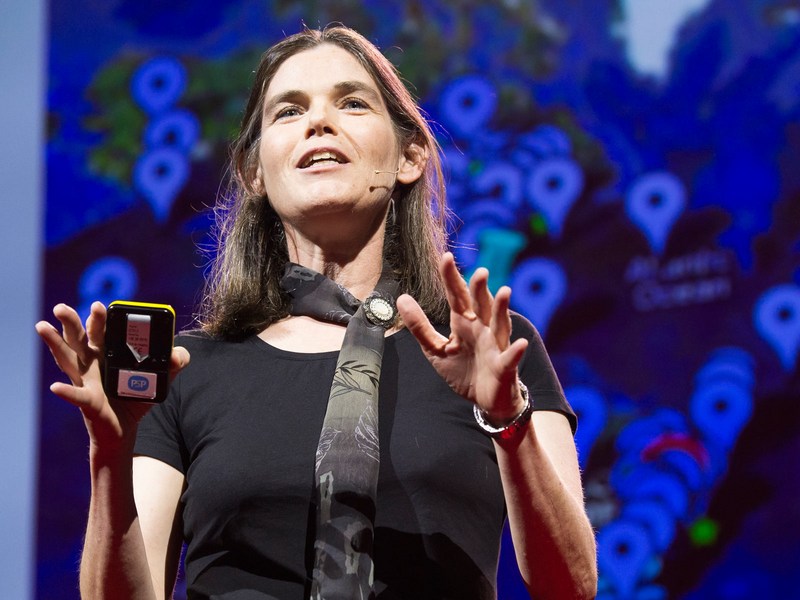Humanity and AI will be inseparable, by Manuela Veloso, Head of Machine Learning, Carnegie Mellon University
Rich Hua stashed this in Technology
Stashed in: Awesome, Siri, Singularity!, AI, The Singularity, Extraordinary People, Women in Tech, Machine Learning, Artificial Intelligence
Symbiotic autonomy:
Veloso is already testing out the idea on the CMU campus, building roving, segway-shaped robots called “cobots” to autonomously escort guests from building to building and ask for human help when they fall short. It’s a new way to think about artificial intelligence, and one that could have profound consequences in the next five years.
Why is AI improving so much now?
You have to understand, for an AI system to know what’s a cell phone or what’s a cup or whether a person is healthy, you need knowledge. A lot of [AI] research in the early days was actually acquiring [that] knowledge. We would have to ask humans. We would have to go to books and manually enter that information into the computer.
Magically, in the last few years, more and more of this information is digital. It seems that the world reveals itself on the internet. So AI systems are now about the data that’s available and the ability to process that data and make sense of it, and we’re still figuring out the best ways to do that. On the other hand, we are very optimistic because we know that the data is there.
The question now becomes, how do we learn from it? How do you use it? How do you represent it? How do you study the distributions — the statistics of the data? How do you put all these pieces together? That’s how you get deep learning and deep reinforcement learning and systems that do automatic translation and robots that play soccer. All these things are possible because we can process all this data so much more effectively and we don’t have to take the enormous step of acquiring that knowledge and representing it. It’s there.
On Alexa:
You know, I’m a big fan of Alexa. I have one at home, and the amount of things I can talk with Alexa about have become broader. At the beginning it was just, "What’s the weather like?" [Now] I can ask, "What is on my calendar?" Alexa’s learning but I’m also learning what Alexa can do. I’m fascinated by how much better it becomes over time.
I’ll tell you one thing that is interesting: when I leave the house, I tell Alexa, "Alexa, stop." I want to stop whatever music it’s playing, because I’m leaving. But if I tell Alexa, "Alexa, I’m leaving," it doesn’t understand that "I’m leaving" means that it should stop. I have to explicitly say "Stop." So I would envision personal assistants becoming more aware of instructions like "Alexa, when I’m leaving, that means that you should stop playing the music." That kind of instructive command is going to be on the research agenda.
Do you think we’ll get to a point where we can ask personal assistants something like, "Oh, the check engine light turned on in my car, should I take it in?" Or "Google, I just got this job offer, should I take it?"
I think you might. These types of questions are decision-making questions — but suppose you had to decide between health insurance plans and you were confused about all the options. You might tell Alexa as you were going to sleep, "Alexa, why don’t you look at all these health insurance plans, or all these cars I can buy, or these schools my kid can go to," and it could compile a report for you overnight.
And a lot of the relevant information is already available online. You can find all the features of the schools, and reviews of the schools by other people. You have blogs about the schools or about other options. You could have an AI system that would gather all the features of these schools, how far they are, what other reviewers they have, [etc.]. You could enter a profile of what you would like from an education, and AI systems can put that information together. They can look at the features, they can learn from past experience, they can process all that information, massage everything that’s available and, with your guidance, with your questions, actually present that information in a way that may be easier for you to digest. Because the information [currently] online is overwhelming and sometimes you cannot handle all that information in real time.

/cdn0.vox-cdn.com/uploads/chorus_image/image/51826239/vrg_1228_veloso_lede_fin.0.0.jpg)









4:29 PM Nov 27 2016